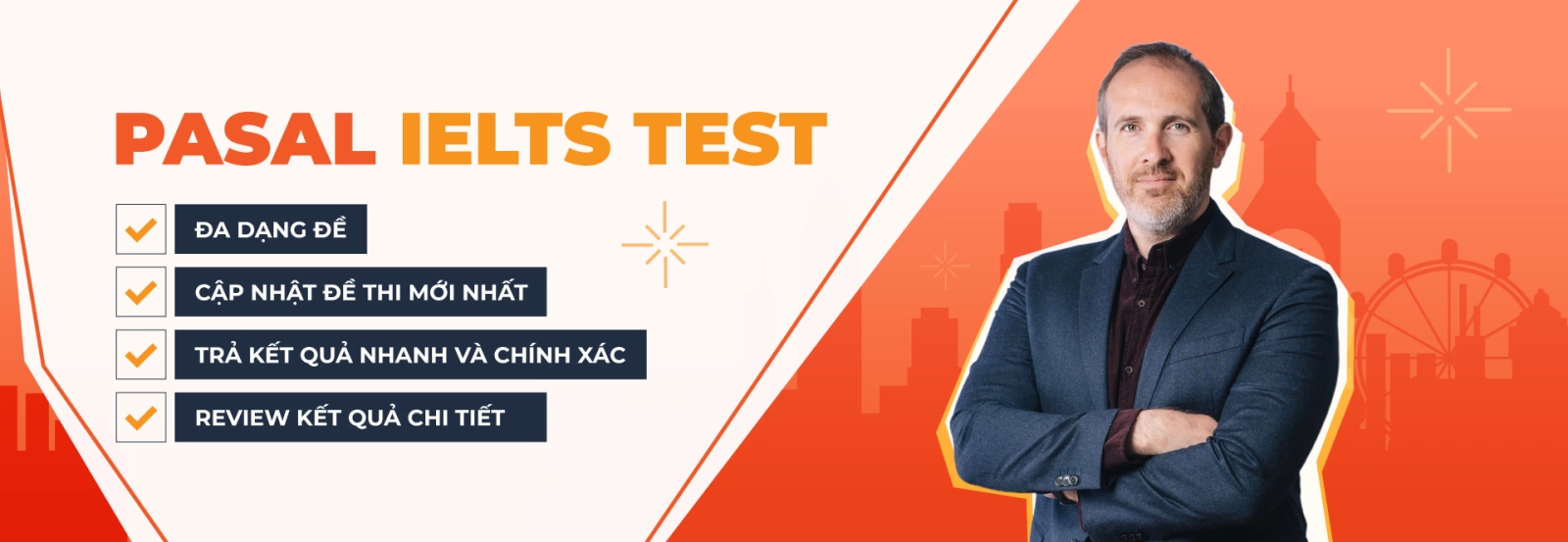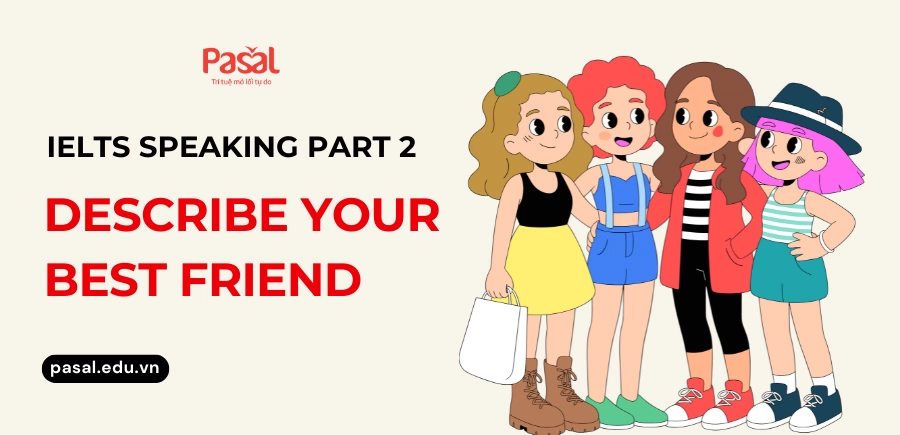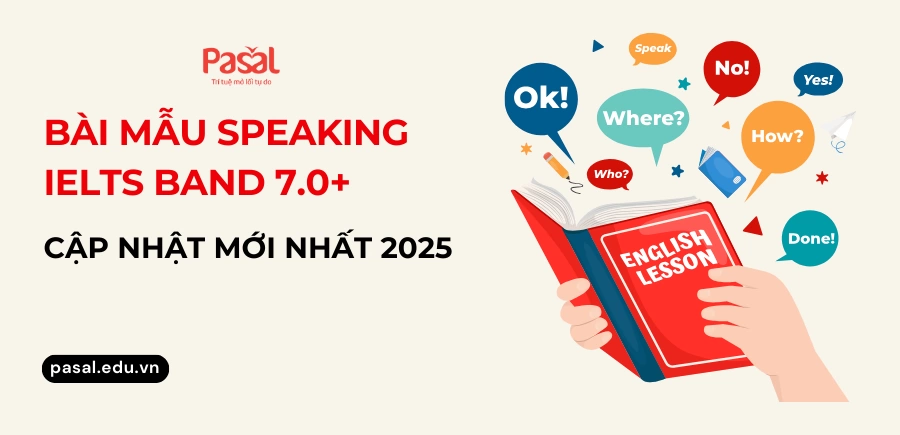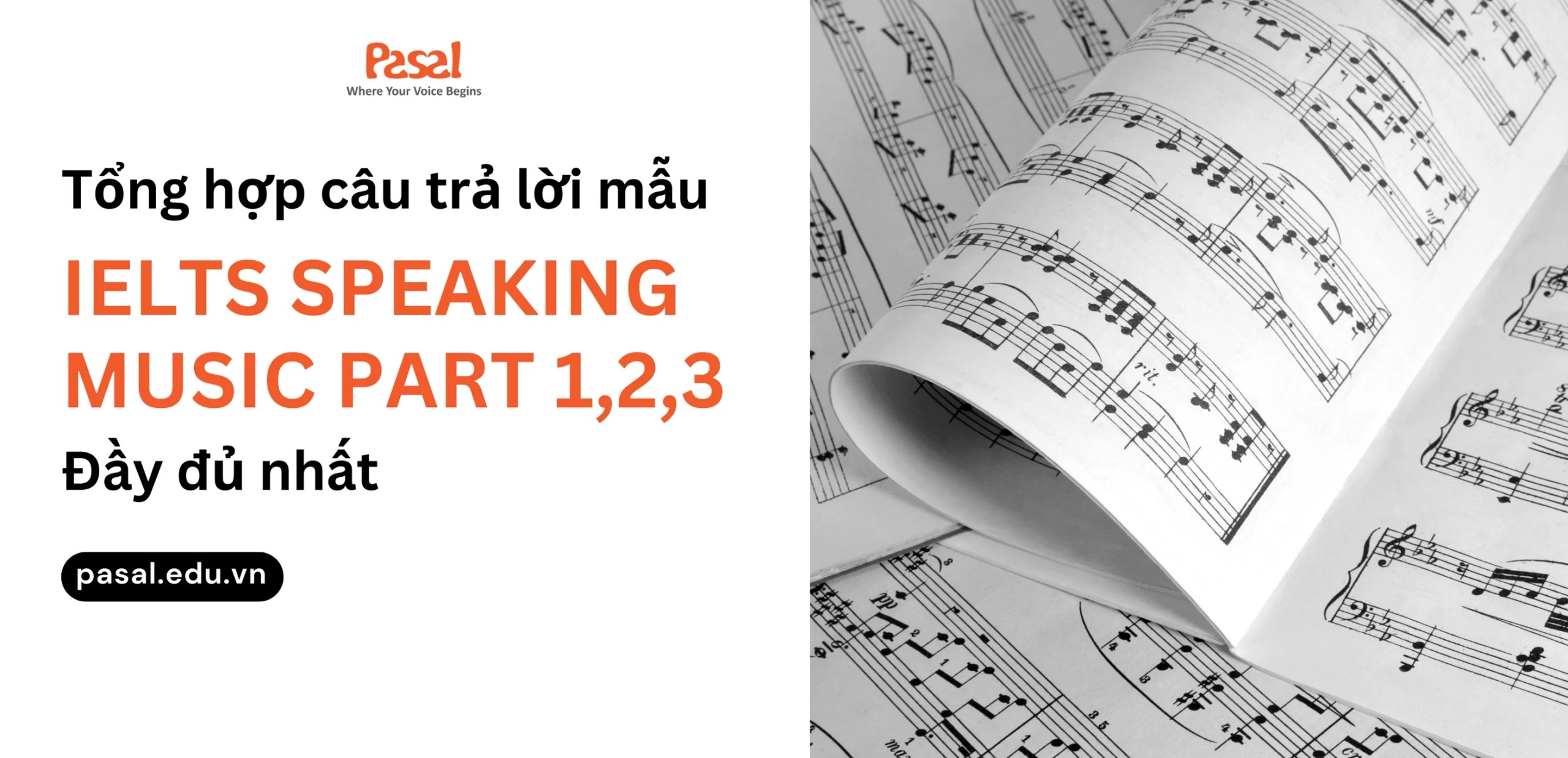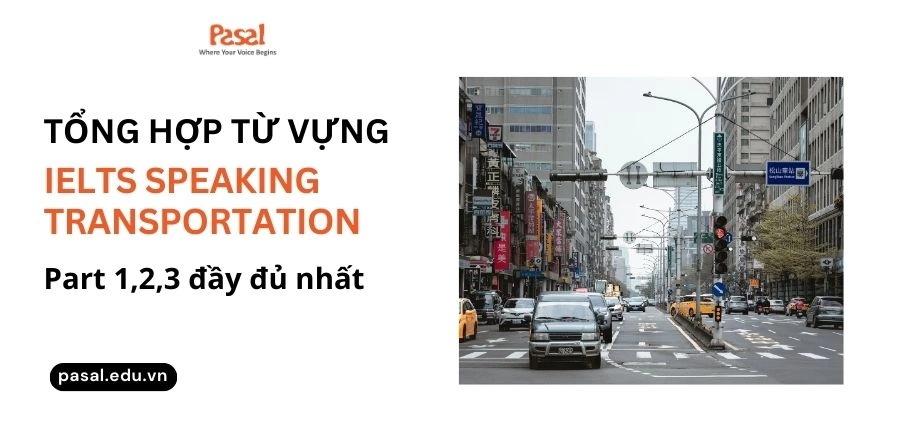Tổng hợp câu trả lời mẫu IELTS Speaking Museum part 1,2,3 đầy đủ nhất
Nội dung quan trọng:
- Một số từ vựng IELTS Speaking Museum: Exhibit (Triển lãm), Artifact (Hiện vật), Curator (Người quản lý bảo tàng), Collection (Bộ sưu tập), Gallery (Phòng trưng bày), Guided Tour (Chuyến tham quan có hướng dẫn), Archaeology (Khảo cổ học),…
- Một số cấu trúc thường dùng trong IELTS Speaking chủ đề Museum: Plays a crucial role (Đóng một vai trò quan trọng), Have a strong interest in (Có sự quan tâm lớn đến), One of the most impressive (Một trong những thứ gây ấn tượng nhất),…
- Một số câu hỏi thường xuất hiện và câu trả lời mẫu trong IELTS Speaking Museum: Are there many (or, any) museums in your hometown? – Yes, there are several fascinating museums in my hometown, Hanoi. Hanoi is deeply steeped in history and culture,… ; Do you think museums are useful for visitors to your hometown/country?/ Do you think museums are important? – I believe museums are incredibly important, not just for visitors but also for locals in Hanoi and our country as a whole,… ;…
Museum là một trong những chủ đề khó nhất trong IELTS Speaking vì độ phức tạp của từ vựng, cũng như cần một số lượng kiến thức nhất định mới có thể triển khai tốt về chủ đề này. Vì vậy, hãy mau tham khảo những bài mẫu hay dưới đây nhé!
Tổng hợp từ vựng IELTS Speaking Museum
Tổng hợp từ vựng IELTS Speaking Museum
Dưới đây là 40 từ vựng về chủ đề Museum từ cơ bản cho đến nâng cao:
- Exhibit (n/v) – Triển lãm
- Artifact (n) – Hiện vật
- Curator (n) – Người quản lý bảo tàng
- Collection (n) – Bộ sưu tập
- Gallery (noun) – Phòng trưng bày
- Guided Tour (n) – Chuyến tham quan có hướng dẫn
- Archaeology (n) – Khảo cổ học
- Interactive Display (n) – Trưng bày tương tác
- Admission Fee (n) – Phí vào cửa
- Historical Period (n) – Thời kỳ lịch sử
- Preservation (n) – Bảo tồn
- Restoration (n) – Khôi phục
- Heritage (n) – Di sản
- Cultural Significance (noun) – Tầm quan trọng văn hóa
- Mural (n) – Tranh tường
- Sculpture (n) – Tượng điêu khắc
- Architectural Design (n) – Thiết kế kiến trúc
- Permanent Exhibition (n) – Triển lãm cố định
- Visitor Center (n) – Trung tâm du khách
- Natural History Museum (n) – Bảo tàng lịch sử tự nhiên
- Modern Art (n) – Nghệ thuật hiện đại
- Public Display (n) – Trưng bày công cộng
- Tourist Attraction (n) – Điểm thu hút du khách
- Educational Outreach (n) – Công tác tuyên truyền và giáo dục
- Archival Materials (n) – Tài liệu lưu trữ
- Artistic Expression (n) – Biểu hiện nghệ thuật
- Virtual Museum (n) – Bảo tàng ảo
- Conservationist (n) – Nhà bảo tồn
- Acquisition (n) – Sự sưu tập
- Temporary Exhibition (n) – Triển lãm tạm thời
- Admire (v) – Ngưỡng mộ
- Historic Landmark (n) – Di tích lịch sử
- Art Appraisal (n) – Đánh giá nghệ thuật
- Artistic Movement (n) – Phong trào nghệ thuật
- Historical Context (n) – Bối cảnh lịch sử
- Artistic Masterpiece (n) – Kiệt tác nghệ thuật
- Exhibition Catalog (n) – Sách hướng dẫn triển lãm
- Cultural Heritage (n) – Di sản văn hóa
- Architectural Marvel (n) – Kỳ quan kiến trúc
- Restoration Process (n) – Quá trình khôi phục
Các cấu trúc thường dùng trong IELTS Speaking chủ đề Museum
- Plays a crucial role: Đóng một vai trò quan trọng.
Ex: This museum plays a crucial role in preserving our cultural heritage.
(Bảo tàng này đóng vai trò quan trọng trong việc bảo tồn di sản văn hóa)
- Have a strong interest in: Có sự quan tâm lớn đến.
Ex: I have a strong interest in history and art, so I always enjoy visiting museums.
(Tôi có sự quan tâm lớn đối với lịch sử và nghệ thuật, nên tôi luôn tận hưởng chuyến đi bảo tàng)
- One of the most impressive: Một trong những thứ gây ấn tượng nhất.
Ex: One of the most impressive artifacts on display is…
(Một trong số hiện vật ấn tượng nhất của buổi triển lãm này là…)
Tham khảo thêm bài viết: CÁC CHỦ ĐỀ IELTS THƯỜNG GẶP TRONG IELTS SPEAKING
Câu trả lời mẫu IELTS Speaking Museum
3.1. Câu hỏi thường gặp và câu trả lời mẫu Speaking part 1
Câu hỏi thường gặp IELTS Speaking Museum part 1
Các câu hỏi thường xuất hiện trong IELTS Speaking Part 1 của chủ đề Museum.
1/ Are there many (or, any) museums in your hometown?
Yes, there are several fascinating museums in my hometown, Hanoi. Hanoi is deeply steeped in history and culture, so it’s only natural that we have a wide range of museums that cater to different interests. For example, we have the Vietnam National Museum of History, the Ho Chi Minh Museum, and the Vietnam Museum of Ethnology, among others. Each of these museums offers a unique perspective on our heritage.
Từ vựng:
- Fascinating (adj): Hấp dẫn
- Deeply steeped in: Sâu sắc
- Perspective (n): Góc nhìn
2/ Do you think museums are useful for visitors to your hometown/country?/ Do you think museums are important?
I believe museums are incredibly important, not just for visitors but also for locals in Hanoi and our country as a whole. They serve as invaluable repositories of our history, traditions, and art. For visitors, museums offer a chance to delve deep into our culture and better understand our rich heritage. For locals like me, they provide opportunities for learning, reflection, and a sense of pride in our roots. Moreover, museums contribute to the preservation of our cultural heritage and play a crucial role in educating the public about it.
Từ vựng:
- Invaluable repository (n): Kho tàng vô giá
- Delve (v): Đào sâu
- Reflection (n): Suy tư
- Root (n): Nguồn gốc
3/ Have you ever been to a historical museum?
Yes, I have visited several historical museums in Hanoi. These museums are like time capsules that transport you to different periods of our history. For instance, the Vietnam National Museum of History showcases artifacts from prehistoric times to the modern era, allowing visitors to witness our country’s evolution over thousands of years. It’s a truly enlightening experience to explore the exhibitions and gain insights into the struggles, achievements, and cultural transformations that have shaped our nation.
Từ vựng:
- Time capsule (n): Hòm thời gian
- Prehistoric time (n): Thời kỳ tiền sử
- Witness (v): Chứng kiến
4/ Do you often visit a museum?
I make it a point to visit museums regularly. With the wealth of historical and cultural treasures in Hanoi, it’s almost a shame not to explore them. I find museums to be both educational and inspirational. They offer a window into the past, helping me appreciate the sacrifices and contributions of our ancestors. Whether it’s art, history, or cultural heritage, I’m always eager to delve into the exhibitions and soak up the knowledge that museums have to offer.
Từ vựng:
- The wealth of : Sự phong phú
- Treasure (n): Kho báu
- The sacrifice (n): Sự hy sinh
- Ancestor (n): Tổ tiên
- Soak up (pv): Hấp thụ
3.2. Câu hỏi thường gặp và câu trả lời mẫu Speaking part 2
Câu hỏi IELTS Speaking Museum part 2
Câu hỏi được dự đoán sẽ xuất hiện trong IELTS Speaking Part 2 của chủ đề Museum:
Describe a museum/ a historical building/ a historical site
The Temple of Literature, known as “Văn Miếu” in Vietnamese, is a historic and cultural complex in Hanoi, Vietnam. It dates back to 1070 and was initially a Confucian temple, later becoming the country’s first national university. The complex includes stunning courtyards, pavilions, and the iconic “Khue Van Cac” Pavilion of the Constellation of Literature known for its unique architecture.
What makes this site exceptional is its blend of architectural beauty and historical significance. Visitors can explore serene courtyards, ancient stone steles, and gardens, offering an ideal place for learning and reflection. Personally, I admire the Temple of Literature because it represents a fusion of history, culture, and education. It’s a place where the wisdom of centuries can be felt, providing a peaceful escape from Hanoi’s bustling city life.
Moreover, the Temple of Literature emphasizes the importance of education and scholars in Vietnamese society, inspiring me as a student. Each visit rekindles my passion for knowledge.
In essence, the Temple of Literature is more than a historical site; it’s a connection to Vietnam’s cultural heritage and a motivation for academic excellence, cherished by both Hanoians and visitors.”
Từ vựng:
- Complex (n): Tổ hợp
- Temple (n): Đền thờ
- Courtyard (n): Sân trong
- Pavilion (n): Gian nhà
- Exceptional (adj): Đặc biệt
- Fusion (n): Sự kết hợp
- Wisdom (n): Tri thức
- Bustling (adj): Rộn ràng
- Emphasize (v): Nhấn mạnh
- Rekindle (v): Làm cháy lên
- Cherish (v): Trân trọng
Tham khảo thêm: 30 đề IELTS Speaking Mock Test kèm tips và sample từ thầy Simon Corcoran
3.3. Câu hỏi thường gặp và câu trả lời mẫu Speaking part 3
Câu hỏi IELTS Speaking Museum part 3
Các câu hỏi trong phần IELTS Speaking Part 3 chủ đề Museum.
1/ Do people in your country enjoy visiting historical places?
In my country, people do enjoy visiting historical places. We have a rich cultural heritage, and historical sites often hold a special significance in our culture. People take pride in exploring these places and learning about our history and traditions.
Từ vựng:
- Hold a special significance: Chứa đựng ý nghĩa đặc biệt
- Take pride in (v): Từ hào về
2/ How important is it to protect historical places?
Protecting historical places is of utmost importance. These sites are invaluable repositories of our cultural heritage and offer a window into the past. They provide us with a perspective on our history, traditions, and the roots of our society. Preserving them ensures that future generations can delve into our history and gain a deeper understanding of our identity.”
Từ vựng:
- Utmost (adj): Tối đa
- Repository (n): Kho chứa
- Ensure (v): Đảm bảo
- Identity (n): Bản sắc
3/ How can people protect their local historical places?
People can protect their local historical places by raising awareness about their importance. Community involvement and support are crucial. This includes advocating for the preservation and restoration of these sites, maintaining them, and ensuring that they are not subject to vandalism or neglect. Additionally, government agencies and heritage organizations play a significant role in safeguarding historical places through policies and conservation efforts.”
Từ vựng:
- Awareness (n): Nhận thức
- Restoration (n): Sự phục hồi
- Maintain (v): Bảo quản, duy trì
- Vandalism (n): Phá hoại
- Neglect (n,v): Thờ ơ
4/ Do you think history can be learned in museums?
History can certainly be learned in museums. Museums serve as educational institutions that offer a profound impact by providing access to artifacts, exhibits, and information related to history. They present historical narratives in a tangible and engaging way, making it easier for people, especially students, to connect with and understand the past. Museums play a vital role in bringing history to life and fostering an appreciation for our heritage.
Từ vựng:
- Institution (n): Cơ sở
- Narrative (n): Kể chuyện
- Tangible (adj): Cụ thể
- Foster (v): Nuôi dưỡng
Lời kết:
Trên đây là tổng hợp chi tiết về chủ đề Museum trong IELTS Speaking Part 1,2,3. Hãy luyện tập thêm về chủ đề Museum để có thể đạt được band điểm Speaking như bạn mong muốn. Pasal mong rằng bài viết sẽ giúp ích được cho các bạn trong quá trình ôn luyện IELTS của mình! Nếu bạn mong muốn làm bài test IELTS để đánh giá trình độ hay luyện tập trước khi thi thật thì có thể tham gia ngay tại đây:





